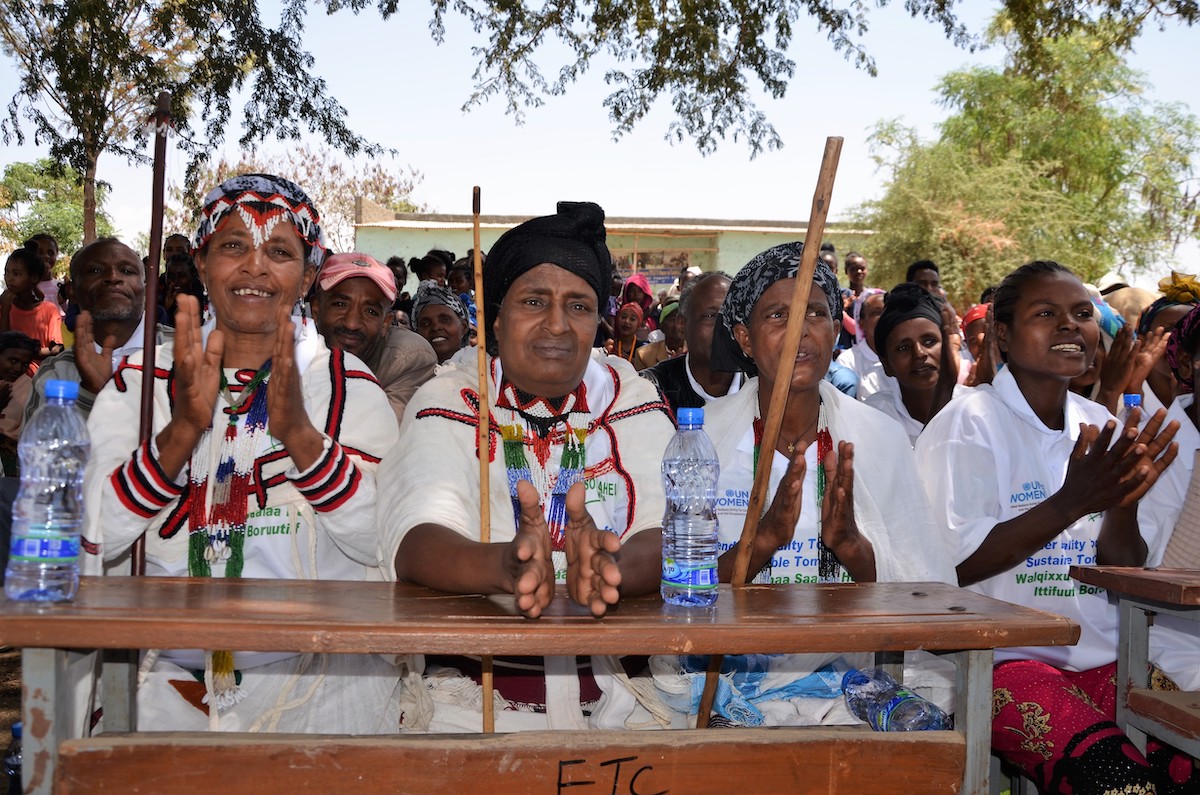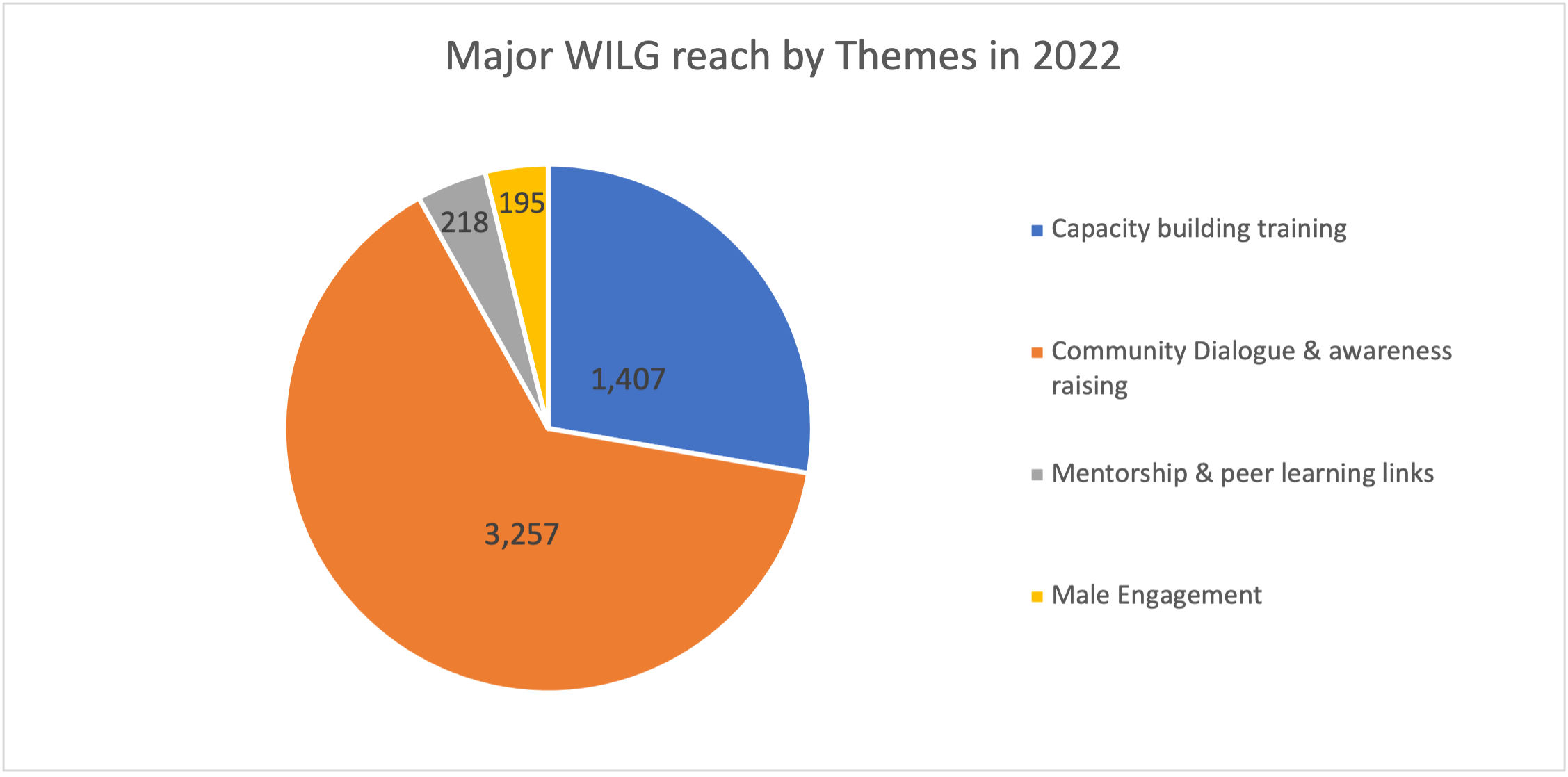
Women in Leadership and Governance programme

Contributing to the overarching goal of promoting the full and equal participation of Ethiopian women in leadership and decision making at all levels as well as promote gender responsive governance; UN Women’s women in leadership and governance program seeks to address multifaceted barriers that hinder women including young women and women with disabilities to meaningfully involve in public and political life. Unequal power relations, gender norms and discriminatory behaviors and practices keep holding women back from participation in leadership and governance processes while the patriarchal nature of public institutions coupled with gender blind normative frameworks exasperate the challenge. UN Women works with democratic institutions, the legislative and executive branch of the government including the gender machinery at federal and regional level as well as with CSOs and academia to alleviate these roadblocks to close the gender gap in public life. UN Women also works to increase the voice and agency of women leaders by creating opportunities to develop their leadership skills through transformative leadership capacity building and mentorship programs, facilitate solidarity and networking opportunities among women from all walks of lives and by collaborating with CSOs and electoral stakeholders to influence political party platforms and electoral processes.
To achieve its objectives, UN Women employees the below multi-pronged strategies:
Ongoing initiatives and partnerships
Awareness promotion, community mobilization, advocacy, and women’s agency: UN Women and CARE Ethiopia are collaborating in Amhara region to challenge negative social norms and stereotypes surrounding women's leadership using the Social Analysis and Action (SAA) method. To complement these efforts, UN Women is also working with Women Can Do It, a local women-led CSO, to provide capacity-building and advocacy training for media personnel across Ethiopia. By engaging with the media in this way, UN Women hopes to change outdated perceptions of women as incapable leaders and decision-makers. Additionally, UN Women is partnering with the Resource Center for Sustainable Change (RCSC) in Sidama Regional State to enhance women's role in peace building and conflict transformation efforts. In addition, given the significant role media plays to shape mindset towards women’s role as leaders and decision makers, UN Women in collaboration with Women Can Do It, a women lead local CSO, targeted media personnel all over Ethiopia including those working on advertisement for capacity building and advocacy. Collaborating effectively with the media can be a powerful tool for influencing public opinion and promoting gender equality, helping to transform outdated perceptions of women as incapable leaders and decision-makers.
Capacity building and mentorship for women leaders: UN Women collaborated with the Office of the President of Ethiopia under the Presidential Leadership Program for women leaders which is a flagship initiative of H.E President Sahle-work Zewde of the Federal Democratic Republic of Ethiopia (FDRE) that targeted 180 middle level women leaders in public, private and CSO sectors in six training cohorts. The leadership program is designed to create and expand a wider pool of transformative and influential women leaders and decision makers in Ethiopia. The Program was launched in the presence of H.E. the President on 1 February 2022 at the African Leadership Academy located in Sululta, Ethiopia. The program has equipped women leaders with new knowledge of leadership principles and enabled them to have an insight as to their own leadership styles by creating a platform for learning and networking with each other to address individual, systematic, and institutional barriers for effective and transformative leadership.
UN Women also collaborates with gender machineries at federal and regional level including Ministry of Women and Social Affairs, Regional Bureaus (Amhara and Oromia Bureau of Women, Children and Social Affairs (BoWCSA) to bring women at the center of the country’s development through promoting their participation in governance and public life at all levels. Particularly, UN Women works with Amhara and Oromia BoWCSA’s to create a sustainable backstop for women leaders by availing capacity building and mentorship opportunities for women leaders. Apart from expanding capacity building platforms, UN Women works with these regional gender machineries to expand multi-stakeholder networking platforms among women leaders and women rights advocates, academia CSOs and women from the private sector. In Amhara Region, UN Women supported the establishment of a Transformative Leadership for Gender Equality training Center in collaboration with Amhara BoWCSA and Bahirdar University. Since 2018, UN Women provided opportunities for 2,828 women leaders all over Ethiopia to develop their leadership skills through transformative leadership for gender equality trainings and mentorship and coaching programs. UN Women also collaborates CSOs and entities such as Network of Ethiopian Women Association (NEWA) and National Electoral Board of Ethiopia(NEBE) to engender the electoral cycle by targeting women political party members to enhance their campaigning and political leaders’ skills while partner with the House of Peoples Representatives(HoPR) to increase the influence women parliamentarism once they get to office by availing leadership capacity building opportunities.
Gender mainstreaming in policies and political institutions: The push to increase women's participation in political and leadership roles, both in elected offices and civil service management, must be accompanied by a gender-sensitive working environment. With this goal in mind, UN Women has partnered with institutions such as the House of Peoples Representatives (HoPR), the National Electoral Board of Ethiopia (NEBE), and the Ministry of Women and Social Affairs (MoWSA) to conduct gender audits, gather data on women's leadership status, and chart a path towards meaningful institutional reforms that promote gender sensitivity.
